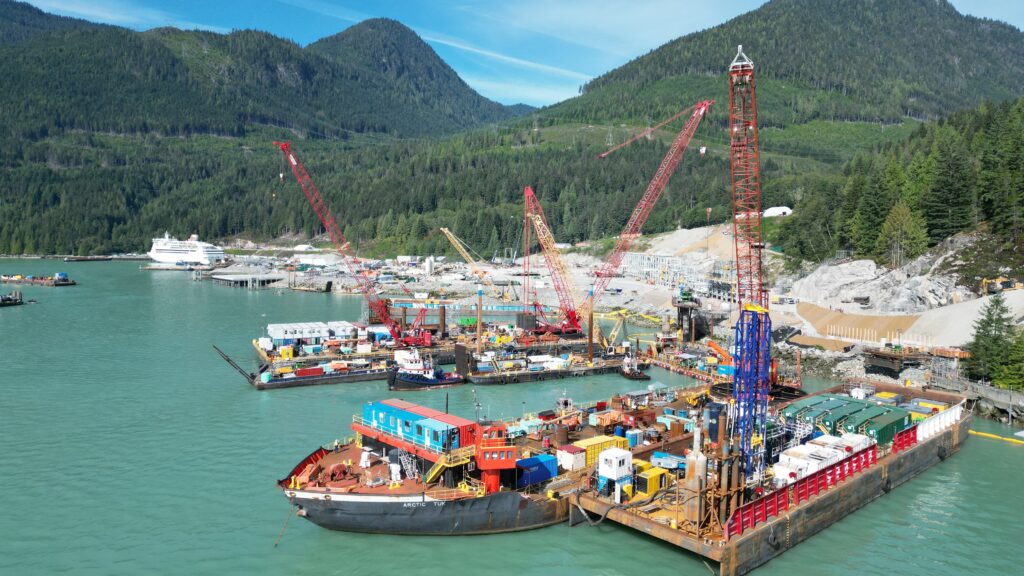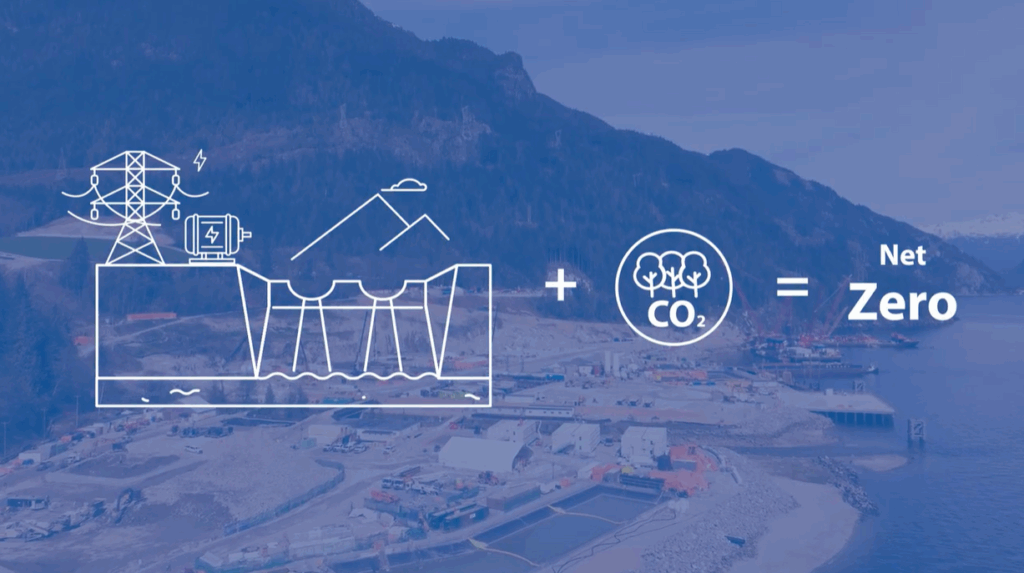News & Insights
Advancing Indigenous Inclusion: Woodfibre LNG’s Operator Training Program Enters the Power Engineering Phase
Sep 24, 2024
Earlier this year, Woodfibre LNG took an important step in ensuring local Indigenous people form a key part of the future workforce for the LNG export facility currently under construction by launching the Operator Training Program. The program recently entered its next stage—the Power Engineering Phase — in which candidates advance to learn the skills needed for long-term careers as Process Operators at the facility.
Woodfibre LNG’s Operator Training Program is a two-year initiative offering Indigenous students, particularly Squamish Nation people, the chance to gain valuable, hands-on experience while preparing for careers as Process Operators. Delivered in collaboration with the Squamish Nation (Sḵwx̱wú7mesh Úxwumixw) Training and Trades Centre and the British Columbia Institute of Technology (BCIT), the program provides the essential skills and certifications necessary to oversee safe and reliable plant operations. Tuition for the program is fully funded by Woodfibre LNG and participants receive a training allowance, helping to reduce the financial pressures of a two-year educational program.

The current phase of training officially began on August 26, at the Squamish Nation Training and Trades Centre in North Vancouver. During the first six weeks, students are introduced to the fundamentals of LNG operations and given an overview of the future Woodfibre LNG facility. This includes an introductory module for anyone new to the LNG industry—the LNG 101 course, led by Capstone Industrial Training Solutions (CITS).
Following this, BCIT will lead candidates through the Power Engineering curriculum, running from October 2024 to March 2025, and focusing on theoretical learning. This will be followed by practical, hands-on training at BCIT’s Power Plant, scheduled to run from April to May 2025. This phase focuses on teaching students how to operate, maintain, and manage industrial power and process plants. Under the mentorship of an experienced Power Engineer, participants will gain real-world experience working with fully functional pressurized equipment and boilers in BCIT’s 3rd class Power Plant lab and machine shop. This provides the students with an opportunity to practice their training in instrumentation, fluid mechanics and other power engineering disciplines in a true work setting. In addition to this, field trips to local power and refrigeration plants will also be organized by BCIT to provide students with valuable insights, offering opportunities for applied learning and deepening their understanding of industrial operations.
The Power Engineering program is rigorous, providing participants with the technical knowledge and practical skills necessary for success. Graduates will be well-prepared to challenge government exams required to obtain an interprovincial certification as a 4th Class Power Engineer—a crucial credential for managing fired pressurized equipment.
Before entering the current phase of the program, participants completed the Operator Training Readiness Program, a four-month initiative ensuring that students were able to meet the math and science prerequisites and pass the entry exam for the Power Engineering Phase. As part of including culture alongside formal education, students engaged in “Cultural Fridays,” where they participated in traditional activities such as drum-making as well as having a chance to discuss challenges as a group. Additionally, mentorship from senior Indigenous staff at Woodfibre LNG provided guidance and motivation.
The final year of the traineeship will focus on site-specific training as part of the Woodfibre LNG plant’s operating team. Trainees will be assigned to a specific area of the facility, where they will work alongside a mentor to develop their expertise in plant operations. As the LNG plant moves into its commissioning phase, trainees will have the opportunity to familiarize themselves with all the equipment in the field and assist in startup activities, preparing them for their future roles as Area Operators.
The future Process Operators will play a critical role in ensuring the smooth and safe operation at the upcoming Woodfibre LNG facility. Their day-to-day responsibilities will include operating and monitoring systems and equipment associated with gas processing and utilities, conducting general inspections to check for malfunctions and coordinating any necessary repairs or maintenance. Operators would also prepare and isolate equipment to allow for safe access by maintenance crews, analyze operational data, and manage permits for work being carried out by other teams or contractors. The role is technically diverse, requiring vigilance, teamwork, and a deep understanding of plant operations.
As the program progresses, Woodfibre LNG remains committed to supporting each participant’s success. By offering comprehensive resources, hands-on training, and mentorship, the program aims to empower participants with the skills and confidence they need to build fulfilling careers as Process Operators at the Woodfibre LNG facility.



